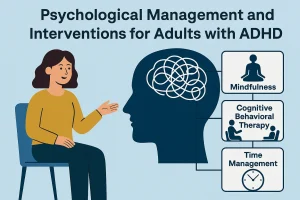How Exercise Improves Concentration: A Simple Guide
Last Updated: September 20, 2024
In today’s fast-paced world, staying focused can feel like an uphill battle. Whether you’re juggling work, studies, or personal tasks, the ability to concentrate plays a crucial role in getting things done efficiently. It’s not just about finishing your to-do list; concentration impacts how well we learn, solve problems, and even interact with others. Distractions are everywhere, from the constant ping of notifications to the endless stream of thoughts that pull us in different directions. So, finding ways to sharpen our focus is more important than ever.
Here’s where exercise comes into play. Beyond the obvious physical benefits, regular physical activity is a powerful tool to naturally boost concentration and mental clarity. You might be surprised to know that something as simple as a daily walk or a quick workout can help clear the mental fog and make it easier to stay on task. By getting your body moving, you’re also setting your brain up for success, thanks to the way exercise positively affects brain function.
Also read: Boost Your Child’s Focus: The Power of Short Breaks
How Exercise Helps the Brain
Ever notice how you feel more alert and upbeat after a workout? That’s no coincidence. Exercise does wonders for your body, but its impact on the brain is just as powerful. Let’s break down how getting active can actually help you concentrate better and think more clearly.
1. Boosts Brain Chemicals
When you exercise, your brain releases a cocktail of chemicals like endorphins, dopamine, and serotonin. These are often called the “feel-good” chemicals because they elevate your mood and make you feel more energized. But their benefits go beyond just making you feel happier; they also play a crucial role in improving focus and concentration.
Think of dopamine, for instance. This neurotransmitter is like your brain’s reward system. It not only makes you feel good but also helps you stay focused on tasks and think more sharply. Regular exercise helps keep your dopamine levels balanced, which can be a game-changer when you’re trying to concentrate on work, studies, or any task that requires sustained attention.
And it’s not just about feeling good in the moment—regular exercise can help keep your brain in top shape over time, making it easier to stay focused even on those days when you’re feeling less motivated. So, if you’re wondering how to improve concentration naturally, incorporating some physical activity into your routine is a smart move.
2. Improves Blood Flow
Another big benefit of exercise is improved blood flow to the brain. When you get moving, your heart pumps more blood, which means more oxygen and nutrients are delivered to your brain. This boost in blood flow helps your brain work better, making it easier to think clearly, solve problems, and stay focused on whatever you’re doing.
Imagine your brain as a high-performance engine. Just like a car needs a steady supply of fuel to run smoothly, your brain needs good blood flow to function at its best. Exercise ensures that your brain gets plenty of this “fuel,” which helps keep your mind sharp and your focus steady.
Regular exercise can also help reduce mental fatigue, a common culprit behind poor concentration. By keeping your brain well-oxygenated, exercise makes it easier to stay alert and attentive throughout the day. So, if you’re struggling with concentration or just feeling a bit foggy, a quick workout might be the boost your brain needs.
Best Exercises for Better Focus
Finding the right exercise to boost your concentration doesn’t have to be complicated. Whether you’re a fitness enthusiast or just starting out, there are various types of exercises that can help improve your focus and keep your mind sharp. Here are some of the best exercises for better concentration, each with their unique benefits:
1. Aerobic Exercise
Aerobic exercises, like walking, jogging, and cycling, are fantastic for boosting concentration. These activities increase your heart rate, which in turn pumps more oxygen-rich blood to your brain, helping it function better. Plus, they’re easy to incorporate into your daily routine. Even a brisk 20-minute walk during your lunch break can clear your mind and improve your ability to focus.
Examples of Aerobic Exercises:
- Walking: A simple, low-impact exercise that’s perfect for all fitness levels.
- Jogging: Great for building endurance and giving your brain a fresh burst of oxygen.
- Cycling: Whether outdoors or on a stationary bike, cycling is a fun way to get your heart rate up.
Not only do these exercises improve concentration, but they also help reduce stress, which is a major barrier to staying focused. So, the next time you feel your mind wandering, a quick aerobic workout might just do the trick!
2. Strength Training
These training, like lifting weights or doing bodyweight exercises, is not just for building muscles; it also benefits your brain. Strength training requires focus and discipline, which translates into better mental concentration over time. As you work on your physical strength, you’re also training your mind to stay on task and push through challenges.
Examples of Strength Training Exercises:
- Lifting Weights: Whether using dumbbells, kettlebells, or resistance bands, lifting weights can sharpen your mental focus.
- Bodyweight Exercises: Push-ups, squats, and planks are great for improving both physical and mental resilience.
The concentration needed to maintain good form and count reps during strength training can directly translate to better focus in other areas of your life. Plus, the sense of achievement from hitting your fitness goals can boost your overall confidence and motivation.
3. Mind-Body Exercises
Mind-body exercises like yoga and Tai Chi are particularly beneficial for enhancing concentration because they combine physical movement with mindfulness. These exercises require you to focus on your breathing, movements, and posture, which naturally improves your mental clarity and helps you stay present.
Examples of Mind-Body Exercises:
- Yoga: Known for its calming effects, yoga helps reduce stress and improve mental focus through a combination of poses, breathing exercises, and meditation.
- Tai Chi: Often described as “meditation in motion,” Tai Chi’s slow, deliberate movements help center your mind and improve concentration.
Mind-body exercises are especially helpful if you’re looking for ways to calm your mind and reduce distractions. They teach you to control your breathing and thoughts, making it easier to focus on tasks throughout the day.
Exercise Types and Benefits for Focus
| Exercise Type | Examples | Benefits for Focus |
|---|---|---|
| Aerobic Exercise | Walking, jogging, cycling, swimming | – Increases blood flow to the brain, delivering more oxygen and nutrients. – Releases endorphins that boost mood and energy levels. – Helps reduce anxiety, making it easier to concentrate. |
| Strength Training | Weight lifting, resistance band exercises, bodyweight exercises (e.g., push-ups, squats) | – Enhances mental resilience and discipline through structured routines. – Improves brain function by stimulating the release of brain-derived neurotrophic factor (BDNF), which supports cognitive function. – Helps improve overall body posture and confidence, which can indirectly boost focus. |
| Mind-Body Exercise | Yoga, Tai Chi, Pilates | – Combines physical movement with mindfulness practices, helping to reduce stress and calm the mind. – Improves mental clarity and awareness through breath control and focus on the present moment. – Enhances body awareness, which can help in grounding thoughts and maintaining concentration. |
How Much Exercise Do You Need?
You don’t need to work out for hours to improve your concentration. Just 30 minutes of exercise a day, on most days of the week, can make a big difference in how well you focus.
1. Start Small and Be Consistent
If you’re just starting out or have a busy schedule, begin with small steps. You can start with short activities like a 10-minute walk, some light jogging, or even stretching. The goal is to make exercise a habit, even if it’s just a little bit each day.
Think of exercise like brushing your teeth—doing a little bit every day keeps things in good shape. As you get used to it, you can slowly increase the time or try new activities that you enjoy.
2. Make It Fit Your Routine
It’s all about finding what works for you. If mornings are too rushed, try fitting in a quick walk during your lunch break or a short workout in the evening. You can even break it into smaller sessions, like three 10-minute walks throughout the day.
The main thing is to stay consistent, but don’t worry if you miss a day here and there. Just keep going, and over time, you’ll notice the benefits in your focus and mood.
Easy Ways to Add Exercise to Your Day
Finding time to exercise can seem tough, but it doesn’t have to be. By adding small movements throughout your day, you can boost your concentration and feel more energized without rearranging your whole schedule. Here are some simple ways to get started:
1. Morning Routine
Starting your day with some movement can set a positive tone for the rest of the day. You don’t need a long workout—just a few minutes of stretching or a quick walk can wake up your body and mind. Morning exercise helps get your blood flowing and your brain firing, making it easier to focus on tasks throughout the day.
Simple Tips:
- Stretch Right After Waking Up: Spend 5 minutes stretching your arms, legs, and back. It’s a gentle way to wake up your muscles and mind.
- Quick Morning Walk: A 10-minute walk around your neighborhood can boost your mood and help clear your mind before the day’s tasks begin.
- Try a Short Home Workout: Simple exercises like jumping jacks, bodyweight squats, or even a few yoga poses can make a big difference in how you start your day.
Adding a little movement in the morning doesn’t just benefit your body; it also sets a positive mindset that can improve your concentration for the rest of the day.
2. Active Breaks
Sitting for long periods can make you feel sluggish and decrease your ability to focus. Taking short, active breaks throughout your work or study sessions can help keep your energy levels up and your mind clear.
Easy Break Ideas:
- Stretch Breaks: Set a timer to remind yourself to stand up and stretch every hour. This helps relieve tension and refresh your mind.
- Walk Around the Room: Even a quick walk around your office or home can break the monotony of sitting and boost your alertness.
- Desk Exercises: Try some simple exercises like seated leg lifts or shoulder shrugs while you work. They’re discreet but effective ways to stay active.
These active breaks don’t require much effort but can significantly improve your focus and productivity. Plus, they’re a great way to sneak in some exercise even on your busiest days.
Overcoming Common Challenges
We all know that finding time to exercise can be tough, especially with busy schedules and endless to-do lists. Plus, staying motivated to keep up with an exercise routine is a challenge many of us face. But don’t worry—there are simple ways to work around these hurdles so you can still enjoy the benefits of exercise for better concentration.
1. Busy Schedule
One of the most common challenges is feeling like there’s just no time to fit in exercise. But even on the busiest days, small bursts of activity can make a big difference. You don’t need to dedicate a full hour at the gym to reap the benefits; instead, look for pockets of time throughout your day.
Quick Tips for Busy Schedules:
- Sneak in Short Sessions: Try doing 5 to 10-minute mini-workouts whenever you have a break. For example, do some stretches while waiting for your coffee to brew or take a brisk walk during lunch.
- Combine Activities: Multitask by combining exercise with other activities. For example, take phone calls while walking around, or do some squats while brushing your teeth.
- Active Commute: If possible, walk or cycle to work, or park a little farther away to add extra steps to your day.
Remember, every little bit adds up, and even short bursts of exercise can help boost your focus and energy levels.
2. Staying Motivated
Staying motivated to exercise regularly can be another big challenge, especially when life gets hectic. Setting small, realistic goals can keep you on track without feeling overwhelmed. The key is to make your exercise routine something you look forward to, rather than a chore.
Tips to Stay Motivated:
- Set Small Goals: Start with achievable targets, like exercising for 10 minutes a day or walking 1,000 extra steps. Celebrate these small wins, as they add up over time and keep you motivated to continue.
- Track Your Progress: Use a fitness app, a journal, or even simple checkmarks on a calendar to track your activity. Seeing your progress visually can be a great motivator and remind you of how far you’ve come.
- Make It Enjoyable: Choose activities you enjoy, whether it’s dancing, hiking, or playing a sport. When exercise is fun, it’s easier to stick with it.
Conclusion
Exercise is a simple way to improve concentration and boost your mental clarity. It helps your brain by releasing chemicals that make you feel good and keep you focused. Activities like walking, cycling, strength training, or yoga can all play a part in enhancing your ability to concentrate. The key is finding something you enjoy and making it a regular part of your routine.
You don’t have to start big—small steps can lead to big changes. Even a quick stretch in the morning or a short walk during your day can help. The goal is to be consistent, and over time, you’ll notice the benefits in your focus and overall well-being. So, why not start today? For more ideas and tips on adding exercise to your routine, check out Wellness Hub. We’re here to help you take those first steps towards a more focused and active life.
Frequently Asked Questions:
1. How does exercise improve concentration?
Exercise improves concentration by increasing blood flow to the brain, releasing feel-good chemicals like endorphins and dopamine, and reducing stress. These factors help clear mental fog, boost focus, and enhance overall brain function.
2. What are the best exercises for better concentration?
The best exercises for improving concentration include aerobic exercises like walking, jogging, and cycling; strength training such as lifting weights or doing bodyweight exercises; and mind-body exercises like yoga and Tai Chi, which combine movement with mindfulness.
3. How much exercise do I need to improve focus?
You don’t need to exercise for hours to see benefits. Just 30 minutes of moderate exercise most days of the week can significantly improve your concentration. Starting small and being consistent is key.
4. Can I improve my focus with just a few minutes of exercise a day?
Yes, even short bursts of exercise, like a 10-minute walk or a quick stretching session, can help improve focus and concentration. The important thing is to make exercise a regular part of your day.
5. What are some easy ways to add exercise into a busy schedule?
You can fit exercise into a busy schedule by taking active breaks, such as stretching or walking during work or study sessions, and starting your day with a quick morning routine. Small activities throughout the day add up and can improve your focus.
6. How can I stay motivated to exercise regularly?
Staying motivated can be easier by setting small, achievable goals and tracking your progress. Choosing activities you enjoy, like dancing or hiking, also helps keep exercise fun rather than a chore.
7. Does yoga help with concentration?
Yes, yoga is great for concentration because it combines physical movement with mindfulness and controlled breathing, which helps reduce stress and improves mental clarity. Regular yoga practice can sharpen your focus over time.
8. Can strength training improve mental focus?
Strength training, like lifting weights or doing bodyweight exercises, helps improve focus by requiring you to concentrate on your movements and form. It also boosts your confidence and mental resilience, contributing to better concentration in daily tasks.
9. How quickly will I notice improvements in my concentration from exercise?
You may start noticing improvements in your concentration within a few weeks of regular exercise. Consistency is key, and even small, daily activities can lead to noticeable changes in your focus and overall mental sharpness.
10. Where can I find more tips on exercise and concentration?
For more tips on how to use exercise to improve concentration, visit Wellness Hub. We offer resources and guidance to help you incorporate healthy habits into your routine for better focus and overall well-being.
About Author:
Lasya Vooturi,
Clinical Psychologist (A) & Behavioral Therapist
Lasya holds a Professional Diploma in Clinical Psychology from Amity University, where she deepened her understanding of psychological principles from March 2023 to March 2024. With over a year of dedicated experience as a Behavioral Therapist, Lasya has honed her skills in applying effective therapy techniques tailored to individual needs. Fluent in Telugu, Hindi, and English, she is adept at connecting with a diverse range of clients, ensuring comprehensive communication and understanding. Lasya’s approach is grounded in empathy and scientific rigor, making her a trusted ally in navigating mental health challenges.
Book your Free Consultation Today
Parent/Caregiver Info:
Client’s Details:
* Error Message








